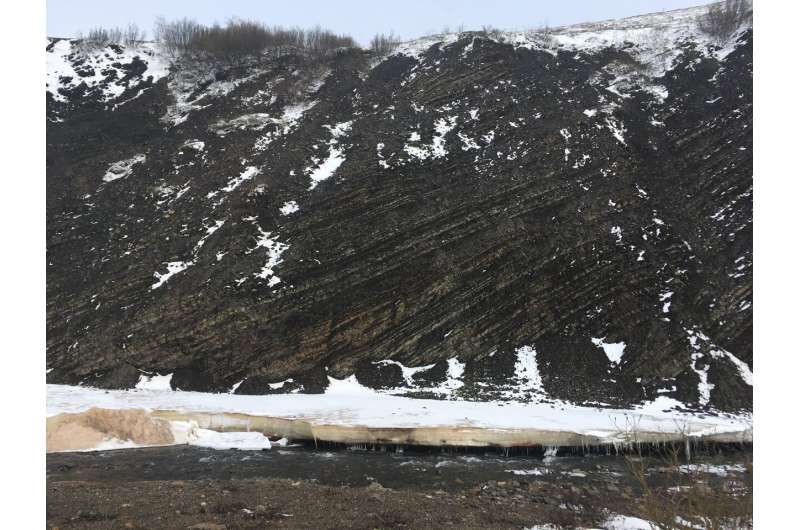Researchers have discovered that the weathering of rocks in the Canadian Arctic is accelerating with rising temperatures, triggering a positive feedback loop that will release more and more CO₂ into the atmosphere. This process, driven by the thawing of Arctic permafrost, could significantly contribute to climate change, potentially doubling CO₂ emissions from the Mackenzie River Basin by 2100. Climate change and Arctic regions are at the heart of this alarming discovery.

Thawing the Arctic Carbon Bomb
A research team led by the Department of Earth Sciences at the University of Oxford reported a disturbing trend in the Canadian Arctic. They found that the weathering of rocks is sped up as temperatures go up in this vulnerable region and more CO2 seeps out into the air.
Compounding the worry is that this warming in the Arctic is happening at nearly four times the average rate, according to some recent studies. When permafrost, naturally frozen ground, thaws as a result of rising temperatures, it thaws touching minerals and rocks leading to the release of CO₂ (carbon dioxide) due to a series of chemical reactions. It is said to spiral into a positive feedback loop—CO₂ released adds on top of climate change gains in its own right, leading more warmth and still more CO₂ out.
Charting the Sulfide-Weathering Beat
Looking at sulfates (SO₄²⁻) in 23 sites across the Mackenzie River Basin — which is Canada’s largest river system — helped quantify the reach of this problem. In order to be a valid proxy, sulfate must form from the weathering of sulfide minerals.
And the numbers are stark: as temperatures increased over the past 60 years by 2.3 degrees, sulfide weathering rose by 45 per cent — bringing CO2 from this basin source alone to a level that could double again to three billion kg/year if all current climate change projections are correct; and this discharge in a moderate emission scenario would exceed half of Canada´s yearly domestic aviation emissions until midcentury.
The Role of Peatlands in Reducing the Feedback Loop
The researchers also saw that the sensitivity of sulfide weathering to temperature differed across the landscape. It was more noticeable in the rocky mountainous areas and those covered with permafrost, i.e. when the weather process of freezing and thawing helps disintegrate rocks even more. This is in contrast to sites with peatland cover, where warming resulted in reduced increases of sulfide oxidation, likely because the Peat helps to shield the bedrock from this process.
This finding exemplifies that the peatland process of formation can act to effectively depress sulfide oxidation and hence restrain their positive feedback loop. Better grasping these regional nuances in the peatland carbon cycle, and figuring out how we might encourage peatland expansion could be key to tackling both the Arctic’s place in global climate change and also to fighting climate change more generally.
